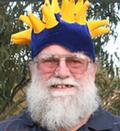Cited By
View all- Simon Sheard JLuxton-Reilly ASzabo C(2023)Computing Education Research in AustralasiaPast, Present and Future of Computing Education Research10.1007/978-3-031-25336-2_17(373-394)Online publication date: 5-Jan-2023
- Wiegand RBucci AKumar AAlbert JGaspar A(2021)Identifying Informatively Easy and Informatively Hard ConceptsACM Transactions on Computing Education10.1145/347796822:1(1-28)Online publication date: 18-Oct-2021
- Barkmin MBrinda T(2020)Analysis of Programming Assessments — Building an Open Repository for Measuring CompetenciesProceedings of the 20th Koli Calling International Conference on Computing Education Research10.1145/3428029.3428039(1-10)Online publication date: 19-Nov-2020
- Show More Cited By






